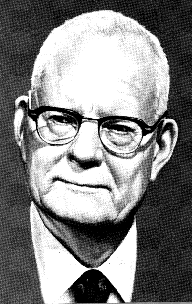Learning is not compulsory... neither is survival.

"William Edwards Deming" was an American engineer, statistician, professor, author, lecturer, and management consultant. Educated initially as an electrical engineer and later specializing in mathematical physics, he helped develop the sampling techniques still used by the U.S. Department of the Census and the Bureau of Labor Statistics.
In his book The New Economics for Industry, Government, and Education, Deming championed the work of Dr. Walter Shewhart, including Statistical Process Control, Operational Definitions, and what Deming called The Shewhart Cycle which had evolved into PDSA (Plan-Do-Study-Act). This was in response to the growing popularity of PDSA, which Deming viewed as tampering with the meaning of Shewhart's original work. Deming is best known for his work in Japan after WWII, particularly his work with the leaders of Japanese industry. That work began in August 1950 at the Hakone Convention Center in Tokyo when Deming delivered a seminal speech on what he called Statistical Product Quality Administration. Many in Japan credit Deming as the inspiration for what has become known as the Japanese post-war economic miracle of 1950 to 1960, when Japan rose from the ashes of war to become the second most powerful economy in the world in less than a decade, founded on the ideas Deming taught:
If you enjoy these quotes, be sure to check out other famous scientists! More W. Edwards Deming on Wikipedia.The result of long-term relationships is better and better quality, and lower and lower costs.
It is not enough to do your best; you must know what to do, and then do your best.
We are here to make another world.
Profit in business comes from repeat customers, customers that boast about your project or service, and that bring friends with them.
What we need to do is learn to work in the system, by which I mean that everybody, every team, every platform, every division, every component is there not for individual competitive profit or recognition, but for contribution to the system as a whole on a win-win basis.
Does experience help? NO! Not if we are doing the wrong things.
It does not happen all at once. There is no instant pudding.
It is important that an aim never be defined in terms of activity or methods. It must always relate directly to how life is better for everyone. . . . The aim of the system must be clear to everyone in the system. The aim must include plans for the future. The aim is a value judgment.
If you stay in this world, you will never learn another one.
If you can't describe what you are doing as a process, you don't know what you're doing.
You can not inspect quality into the product; it is already there.
Copyright © 2024 Electric Goat Media. All Rights Reserved.